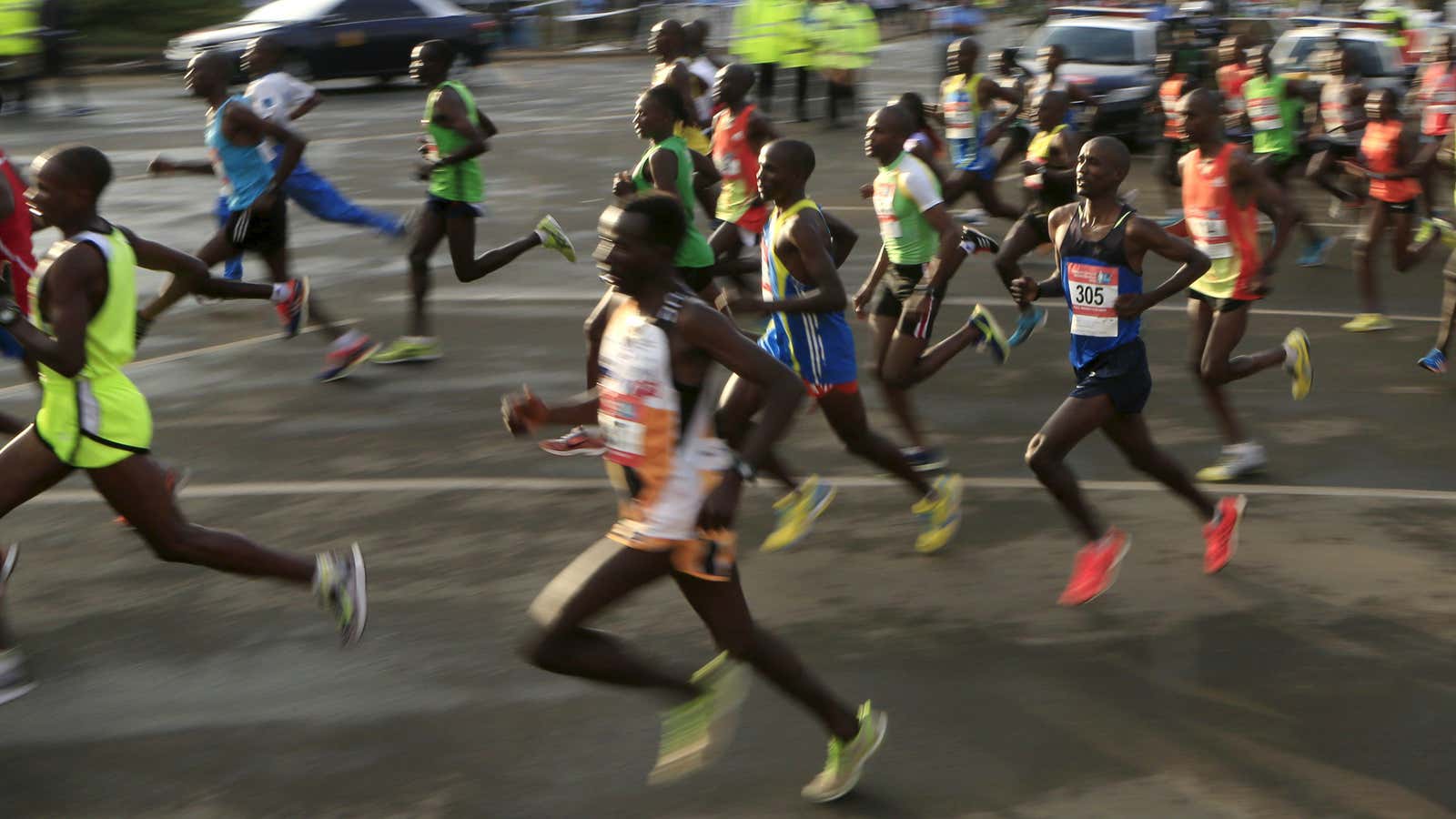Kenya is facing a potential ban from the 2016 Olympics after failing to meet a deadline set by the World Anti-Doping Agency (WADA) to demonstrate that it is doing enough to root out cheating in athletics.
The International Association of Athletics Federations (IAAF) has warned the east African country that should it be declared non-compliant by WADA, a real risk after the missed deadline, its athletes could be banned from participating in the Summer Olympics taking place in Rio de Janeiro later this year.
“We have to be much more proactive,” Sebastian Coe, president of the IAAF, told BT Sport. “If it means pulling them out of World Championships or Olympic Games then we will have to do that.”
Kenya is one of the world leaders in track and field competitions, winning 16 medals at the recent 2015 World Championships, and topping the medals table.
But the country’s athletics field has faced growing scrutiny after an investigation last year by German broadcaster ARD and the Sunday Times (paywall) suggested that doping was rife within the sport. WADA launched an investigation into these claims last August.
Over 40 Kenyan athletes have tested positive for banned substances since 2011, receiving bans totaling 55 years, according to the BBC. The sport’s governing body Athletics Kenya (AK) is also facing allegations of corruption, including that officials demanded bribes in exchange for declaring athletes drug-free.
WADA officials have been pushing the Kenyan government for some time to take measures to empower the country’s anti-doping agency, ADAK, including passing legislation that will criminalize doping and injecting much-needed funding to strengthen its investigative efforts.
Last week, WADA met with Kenyan officials to inquire as to what has been done on this front. In a statement, the agency said that while there has been progress, Kenya has yet to demonstrate concrete plans that it will institute the directives. ”We have not yet received the details nor the assurances we need from Kenya; and, therefore, this is now a matter for our independent compliance process,” WADA said.
The country now has two months to introduce new legislation and ramp up its drug testing structures, or be declared non-complaint by WADA, which could result in bans from major events including the Olympics.
Kenyan officials have urged people not to overreact to the developments. Kiplimo Rugut, chief executive of ADAK, told reporters this week that the government has already met one of WADA’s demands, which was to make funding available for drug testing.
“We shall have conformed to all the WADA conditions in two weeks time and there is no need to panic,” Rugut said.
The possibility of not being allowed to compete at the Olympics has led Kenyan athletes to put pressure on their government to met WADA’s requirements.
“This is a country which has made its name as an athletics giant,” Wilson Kipsang, an Olympic bronze medallist and president of the Professional Athletes Association of Kenya, told the Daily Nation. “We have done well in the Olympic and World Championships and therefore, we should not miss out complying with the doping directives.”
